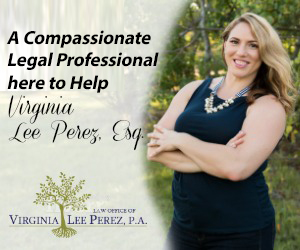Frequently Asked Questions
Clear answers to common questions about estate planning, probate, trusts, elder law, and asset protection in Florida. This page provides general information, not legal advice.
General
What areas of law do you handle?
We focus on Estate Planning, Probate, Trust Administration, Elder Law, Asset Protection,and helping Florida families protect what matters most with flat-fee transparency whenever possible and convenient virtual or in-office appointments.
Do you offer virtual consultations?
Yes. We regularly meet by phone or video with clients across Florida. We’ll review your goals, outline recommended documents or next steps, and provide clear pricing before any work begins.
After You Sign: Storing Your Will & Trust
Where should I keep my signed original documents?
The safest option is often a bank safe-deposit box (protection from fire, theft, and loss). If you choose this, name a trusted person (e.g., Personal Representative or trustee) as a joint holder for access after death. Other choices:
- Attorney storage: We do not retain originals due to disaster-risk and continuity concerns.
- Home safe: Acceptable if bolted down; otherwise thieves may remove the entire safe.
- Freezer method: Some store originals in an airtight bag at the bottom of a freezer. Freezers are well insulated and heavy, and have a way of withstanding fires, hurricanes, and tornadoes.
If a Will is in a safe-deposit box, how is it accessed after death?
If a joint holder is named, they can retrieve it directly. Without a joint holder, a court order may be required to open the box and deliver the Will to the court. That route takes longer and involves legal filings and fees.
Should I give copies of my Will or Trust to family or fiduciaries?
It depends on privacy and family dynamics:
- Keep private if distributions are unequal, trust is an issue, or you prefer confidentiality.
- Share copies if communication is open and shares are equal, it reduces confusion later.
Gifting & 529 Plans
How much can I give without paying gift tax?
For 2025, the annual exclusion is $19,000 per recipient (married couples can effectively give $38,000). Larger gifts use part of your $13,990,000 lifetime exemption. Tuition and medical payments made directly to the provider don’t count against the annual limit. Gifts above the annual amount generally require a gift tax return (Form 709) by April 15 of the following year. Consider trusts for larger gifts to add control and protections.
General info; individual tax advice should be obtained from your CPA/attorney.
Why are 529 college savings plans so popular?
529s allow tax-free growth and withdrawals for qualified education expenses. Contributions qualify for the annual exclusion and can be “5-year front-loaded” (elect to treat a large gift as made evenly over five years). Funds are generally outside your taxable estate, and you may name a successor owner. Trade-offs: you pick a portfolio (not individual securities), and non-qualified withdrawals incur income tax on earnings plus a 10% penalty.
Trusts (Living, Bypass, Insurance)
Who should consider a Living Trust? Pros and cons?
Benefits:
- Avoids probate: Smooth post-death administration when assets are properly titled in the trust.
- Privacy: Unlike a Will’s public inventory, trust assets/values remain private.
- Incapacity planning: A successor trustee can manage finances; fewer acceptance issues than some POAs.
- Fewer challenges: Trusts can be harder to contest than Wills.
- Out-of-state property: Titling in trust can avoid ancillary probate in other states.
- Setup/funding takes time; you must title assets to the trust and maintain it.
- More complex than a simple Will; revoking/unwinding later can be tedious.
- Doesn’t eliminate work for taxable estates (valuations, returns, etc.).
- Missing even one asset may still require probate.
Living Trust vs. Bypass Trust — what’s the difference?
A Living Trust is a revocable, during-life arrangement for ownership/management (often to avoid probate and plan for incapacity). A Bypass Trust is typically an irrevocable trust created at death (by Will or Living Trust) to preserve estate tax exemptions and protect assets (creditors, divorces) while allowing the deceased spouse to direct ultimate distribution. For high-net-worth couples, it can effectively shelter two exemptions.
Why use an Irrevocable Life Insurance Trust (ILIT)?
If you own a policy, the death benefit can be included in your taxable estate. An ILIT can keep proceeds outside your estate, provide creditor protection, and enable long-term, tax efficient transfers using lifetime trusts for children/grandchildren (often with “HEMS” standards for health, education, maintenance, support). It also adds control over timing and use of funds.
Custodial Accounts (UTMA/UGMA)
My child’s custodial account is large—can I keep control when they reach the age of majority?
Gifts to custodial accounts are irrevocable. You can’t take funds back, but you might reposition assets (e.g., a limited partnership interest) to limit rights while keeping value. This adds complexity and potential challenge. A practical approach is proactive communication and structured planning so the child permits continued management.
Can I reimburse myself from a custodial account if it’s overfunded?
No returning funds to yourself would be improper. Instead, use the account for the child’s legitimate expenses (education programs abroad, a reasonable vehicle, etc.) so your personal funds are preserved while the account benefits the child as intended.
Tax & Basis
What is a “step-up in basis” on inherited assets?
On death, most appreciated assets receive a new basis equal to fair market value at date of death (or alternate valuation, if used for taxable estates). This can substantially reduce capital gains if heirs later sell. Gifting highly appreciated assets shortly before death may not produce a step-up if the decedent dies within one year of the gift and the asset returns to the original donor.
I inherited stock with very low original cost—when are taxes due?
You generally owe no tax until you sell. Your basis is the value on the date of death (technically, the average of the day’s high and low). A sale within one year produces short-term gain/loss; after one year, long-term. Estates over $13,990,000 (2025) may also have separate filing obligations, coordinate with your CPA.
Health Care Surrogate & Living Will
Difference between a Living Will and a Health Care Surrogate?
A Living Will states your wishes about life-prolonging treatment in terminal or irreversible conditions. A Designation of Health Care Surrogate appoints an agent to make medical decisions consistent with your wishes if you cannot. They’re often combined for clarity and ease of use.
Can my Surrogate override my Living Will?
There can be overlap. An agent’s decision under a Health Care Surrogate may affect life-sustaining measures before your Living Will technically applies. Clear instructions and good surrogate selection reduce conflict and ensure your preferences are honored.
Probate
Which assets avoid probate?
Assets with designated beneficiaries (life insurance, IRAs/401(k)s, annuities), POD/TOD accounts, and properly titled joint accounts with rights of survivorship pass outside the Will. Trust-titled assets pass under the trust. Assets held solely in the decedent’s name (e.g., real estate, single-name bank accounts) typically require probate.
Is probate required for small estates? Are insurance proceeds counted?
Probate is required only to retitle assets that don’t transfer another way. This is separate from federal estate tax filing thresholds (2025: $13,990,000). Insurance proceeds are included when calculating that tax threshold if the decedent owned the policy. We’ll guide you on whether summary administration or formal probate applies.
Questions about your situation? We’re here to help. Call (305) 791-1529, send us a message, or start your secure intake.
Prepared by: Law Office of Virginia Lee Perez, P.A. • 1600 Ponce de Leon Blvd, 10th Fl, Coral Gables, FL 33134
This page is general information only and not legal advice. Reading it does not create an attorney-client relationship.

